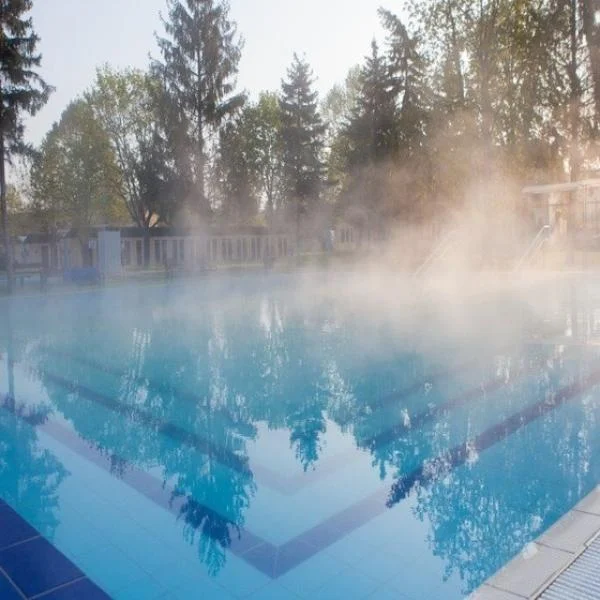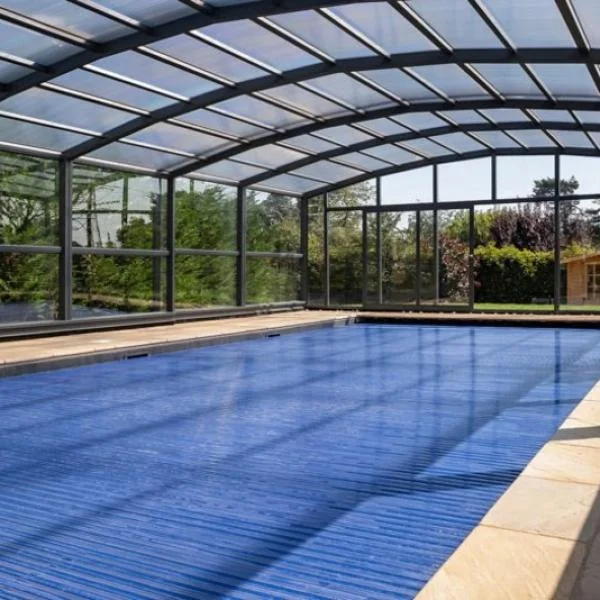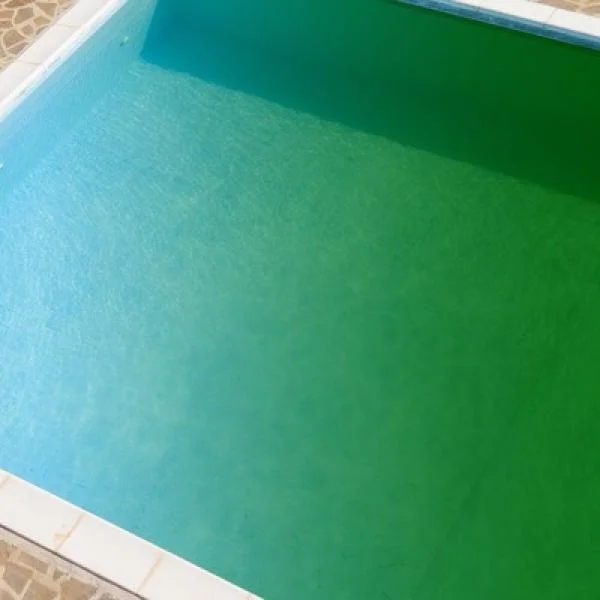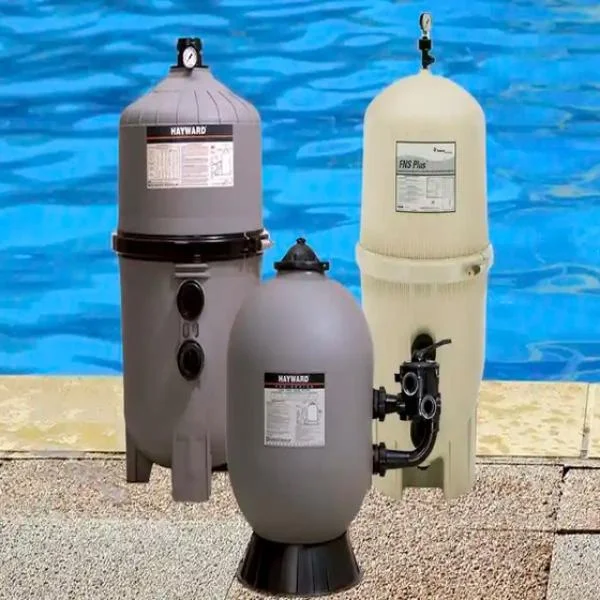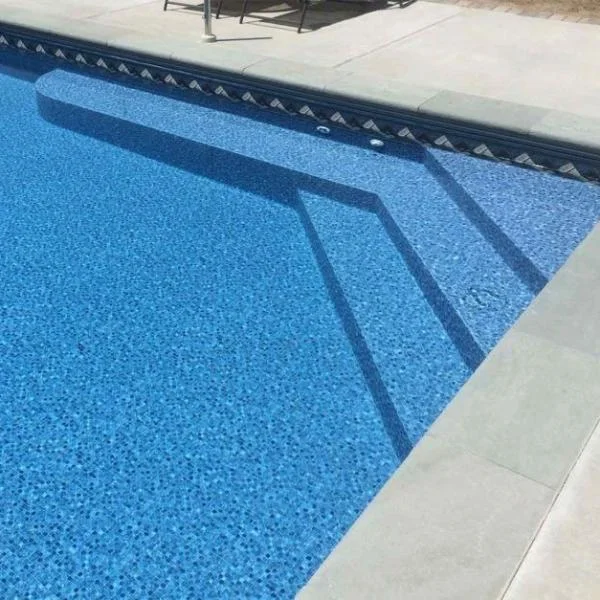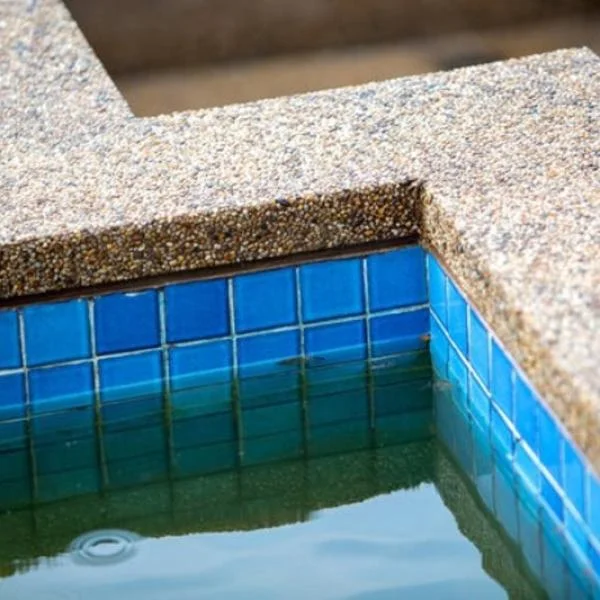
Pool maintenance is crucial to ensuring its cleanliness, safety, and longevity. Whether you have a small backyard pool or a large commercial one, following the right pool maintenance practices will help keep the water clear and free from debris. In this article, we'll recommend some essential tips that will help you maintain a clear and safe pool.
Why Need Your Pool Maintenance?
Pool maintenance is crucial for a variety of reasons. First, it ensures the water's safety by preventing the buildup of harmful bacteria, algae, and contaminants. Regular upkeep helps protect swimmers from waterborne illnesses and keeps the pool safe for use.
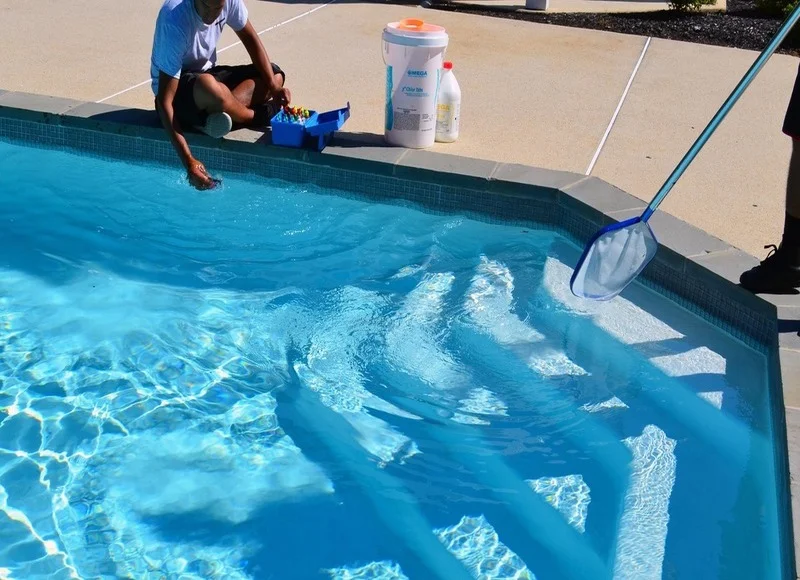
Proper maintenance also extends the life of your pool's equipment. The filtration system, pump, and other parts can suffer from debris buildup or imbalanced chemicals, leading to expensive repairs. Keeping everything in check prolongs the functionality of your pool's components.
Furthermore, a well-maintained pool improves the visual appeal of your outside space. Without routine cleaning, algae and dirt can turn a beautiful pool into an eyesore. Regular pool maintenance keeps the water clear and inviting, preserving the pool’s appearance.
Finally, maintaining your pool saves costs in the long run. Neglecting regular cleaning, chemical balancing, or equipment checks can lead to costly repairs. Consistent care ensures fewer maintenance expenses and helps keep your pool running smoothly.
Tips for Pool Maintenance Clean
Maintaining a clean pool involves regular attention to several aspects, including cleaning debris, checking chemical levels, and ensuring proper filtration. Here are essential tips for your pool maintenance to clean and safe before swimming:
Skim and Brush the Swimming Pool Regularly
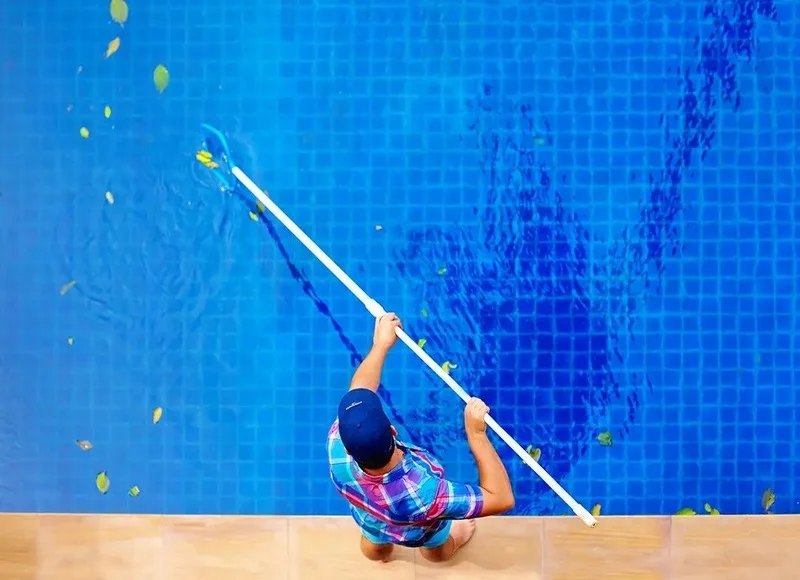
One of the simplest yet most effective ways to pool maintenance clean is by regularly skimming the surface for debris like leaves, insects, and dirt. Using a net or skimmer, remove these particles daily to prevent them from sinking and accumulating on the pool floor. In addition to skimming, brush the walls and floor of the pool weekly to remove algae and dirt buildup. Pay special attention to areas where water circulation is minimal, such as steps, corners, and behind ladders.
Vacuum the Pool
Even with regular skimming and brushing, debris and dirt can settle on the bottom of the pool. Vacuuming a pool once a week helps remove stubborn dirt and pool maintenance water clarity. Depending on your preferences and budget, you can choose an automatic pool cleaning or a manual vacuum.
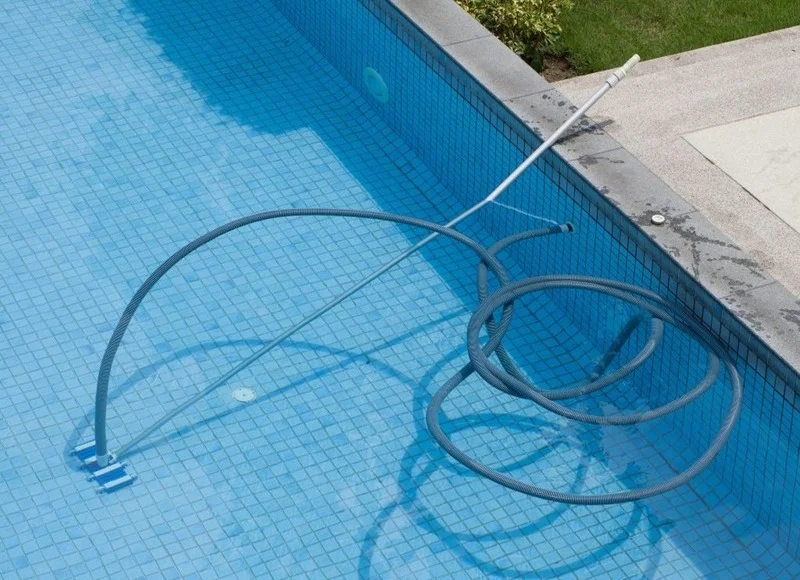
Water Circulation
Good water circulation is essential for keeping your pool clean and preventing algae growth. Ensure that your pool’s pump and filter system are functioning properly, as these systems are responsible for circulating water and filtering out contaminants. Run the pump daily for an adequate amount of time, typically 8 to 12 hours, depending on the size of your pool.
Empty Skimmer and Pump Baskets
The skimmer and pump baskets catch debris before it reaches the filter, but they can quickly become clogged. Always empty these baskets regularly, once a week, to ensure proper water flow and filtration. A clogged basket can strain the pump and reduce circulation, leading to dirty water and equipment wear.
Check and Maintain Swimming Pool Filters
Your pool’s filter plays a critical role in keeping the water clean by trapping particles, dirt, and debris. Pool filters have three different types: sand, cartridge, and diatomaceous earth (DE) filters. Each type requires different cleaning methods, so follow the Instructions. Clean or backwash the filter at least once a month, and replace it as needed for swimming pool maintenance efficiency.
How to a Swimming Pool Maintenance Sparkling Clear
Pool maintenance sparkling clear water requires more than just skimming and vacuuming. It’s essential to ensure your pool’s water chemistry is properly balanced and that the water is sanitized to prevent bacteria and algae growth. Here’s how to keep your pool water crystal clear:
Test and Balance Chemical Levels
Maintaining the right chemical balance is critical for keeping your pool water clear. The key factors to test and adjust are chlorine, pH, alkalinity, and calcium hardness:
- Chlorine: Chlorine is used to sanitize the water and kill bacteria and algae. Keep the chlorine level between 1.0 and 3.0 ppm.
- pH Level: The ideal pH range for pool water is between 7.2 and 7.6. A pH level that is too high or too low can lead to skin irritation, equipment damage, and cloudy water.
- Alkalinity: Total alkalinity is a buffer for pH levels, preventing rapid fluctuations. The alkalinity range recommended is 80–120 ppm.
- Calcium Hardness: Maintaining proper calcium hardness helps prevent scaling (high calcium) or corrosion (low calcium). There should be a 200–400 ppm range.
Test pool water at least twice a week using test strips or a pool testing kit. To maintain the water's balance, adjust the chemical amounts as necessary.
Shock the Pool Regularly
Shocking the pool involves adding a large dose of chlorine or non-chlorine shock to kill bacteria, algae, and other contaminants that regular chlorine levels may not handle. Shocking your pool weekly or after heavy use can prevent cloudy water and algae growth. It’s also essential to shock the pool after rainstorms, as rainwater can introduce contaminants and disrupt the chemical balance.
Use a Pool Clarifier
A pool clarifier can help keep the water sparkling by binding tiny particles together, making them large enough for the filter to capture. If your pool water looks slightly cloudy, a clarifier can quickly restore its clarity. Add a clarifier to your pool after vacuuming or shocking, as directed by the product instructions.
Prevent and Remove Algae
Algae growth is one of the primary culprits of discolored, cloudy pool water. To prevent algae, maintain proper chlorine levels and use algaecide as part of your routine pool care. If you notice algae growth, brush the affected areas and shock the pool to eliminate it.
Conclusion
In summary, Dong A has shared with readers the most essential knowledge about some tips for pool maintenance clean and safe. By following these essential pool maintenance tips, you can enjoy a sparkling, inviting pool throughout the swimming season. Regular skimming, vacuuming, chemical testing, and equipment checks will ensure your pool remains a safe and beautiful spot for relaxation and fun.
If you need more references about our water treatment products, please go to the official website of Dong A Chemical at dongachem.com or call a hotline (+84) 985797941 to receive advice and support from the experienced consultant.
Related Articles
6 Easy Methods to Heat a Swimming Pool and Extend Your Swim Season
Throughout the swimming season, it can be challenging to maintain the proper temperature in the ...
The Importance of a Swimming Pool Cover and How to Choose
A swimming pool cover is one of the most essential equipment for your pool. A pool cover plays a ...
Why is My Pool Water Green? Causes and Solutions
Pool water green is not just an eyesore but can also be a sign of potential health hazards. No one ...
When and How to Clean a Pool Filter for Optimal Performance
A clean pool filter is essential for maintaining clear water and working hard to remove dirt, ...
The Best Ways to Clean a Pool Liner and Prevent Stains
A clean pool liner is essential for maintaining a crystal clear and safe swimming pool. Over time, ...
How to Clean Pool Tiles: Remove Calcium Deposition, Stains, and Algae
Keeping clean pool tiles is essential for maintaining your swimming pool's appearance and ...

